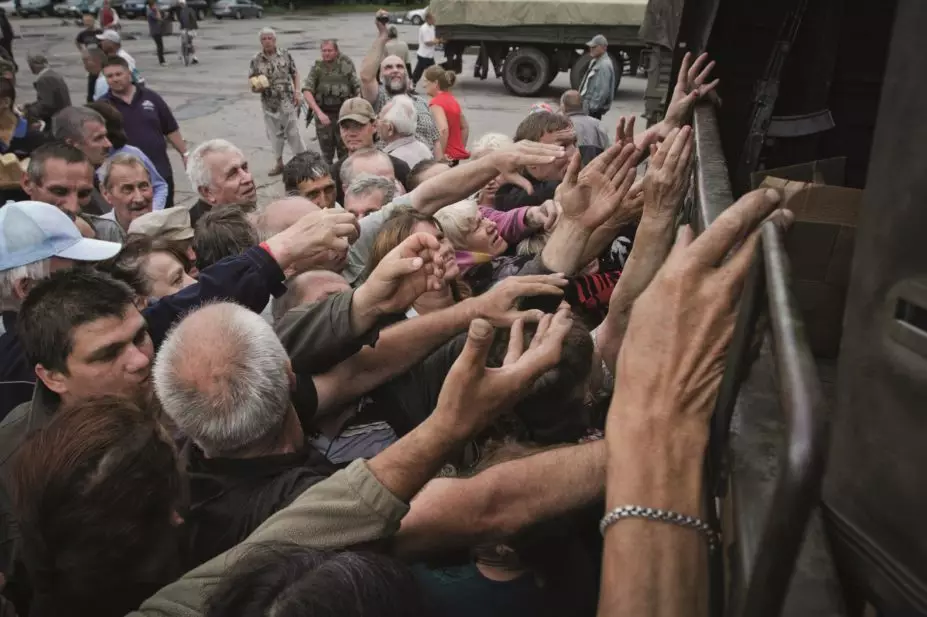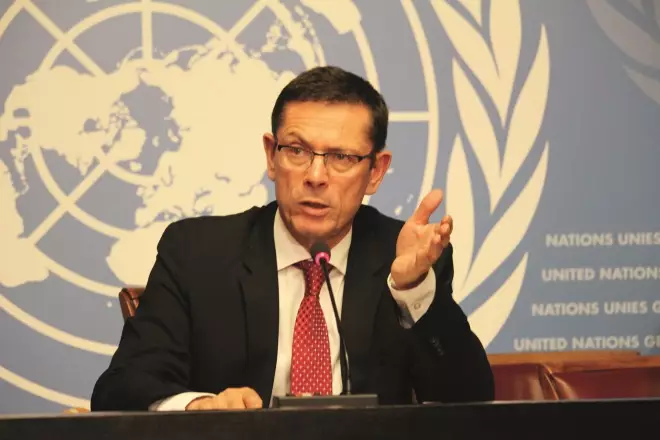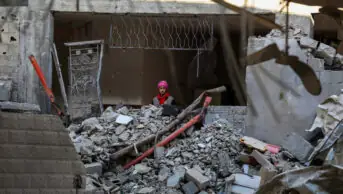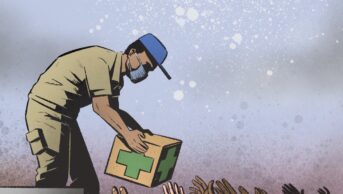
ZUMA Press, Inc. / Alamy
Millions of people displaced or severely affected by the conflict in Ukraine are in dire need of basic services, with the lack of medicines and vaccines a major concern, a new United Nations (UN) report has warned.

Source: John Zarocostas
Ivan Simonovic, UN assistant secretary-general for human rights, talks to reporters on the situation in Ukraine, in Geneva, on 1 June, 2015
“The humanitarian situation in areas under armed groups is very difficult,” Ivan Simonovic, UN assistant secretary-general for human rights, told reporters on 1 June 2015.
The situation has been aggravated by Ukraine’s debt crisis, currency devaluation and by its over-regulated and corruption-plagued government procurement system for medicines — which the central government in Kiev is now trying hard to reform — senior UN officials, speaking on the condition of anonymity, told The Pharmaceutical Journal.
Medicines purchased by Ukraine’s ministry of health on 24 November 2014 for patients with diabetes, cancer and genetic diseases were still stocked in the government-controlled town of Sieverodonetsk in the Luhansk region and not transported to areas controlled by armed groups, says the UN report.
“To date, there are no systematic and sustainable mechanisms to deliver psychotropic drugs to psychiatric institutions, as well as guarantee consistent treatment of HIV/AIDS and tuberculosis in the areas controlled by the armed groups,” it says.
Lack of vaccines also continues to be a major problem, it notes, heightening the risk of an outbreak of measles, diphtheria or polio.
There are no systematic and sustainable mechanisms to deliver psychotropic drugs to psychiatric institutions
According to the UN children’s agency UNICEF, barely half of Ukraine’s 7.9 million children are vaccinated, “the remainder are under- or un-vaccinated,” it adds.
A recent assessment of the situation in Ukraine by the World Health Organization (WHO) concluded that “timely procurement is hampered by lengthy legal procedures and there have been failures in the tendering process for the supply of medical supplies, notably for vaccines, tuberculosis (TB) and HIV/AIDS treatments and medications for hypertensive and cardiovascular conditions”.
The UN and its aid partners, with the support of the Ukrainian government, are playing a “bridging role”, as a senior WHO official put it, in the procurement, delivery and distribution of medicines.
Ukraine’s ministry of health has asked UN agencies such as WHO and UNICEF to import vaccines and HIV medicines, as the first step, the official said. “Until the legal procedures are cleared, WHO, ICRC (International Committee of the Red Cross) and MSF (Doctors Without Borders) are procuring medicines, including those needed for non-communicable diseases.”
To date, the WHO has delivered 37 kits to cover common care needs for 370,000 people for 3 months (with 13 additional kits in the delivery pipeline) and 10 trauma kits to support care for 1,000 injuries.
Meanwhile, on 29 May 2015, the WHO delivered a new batch of medical aid to non-government controlled areas, as part of a UN convoy to Donetsk city, which included 5 tonnes of medicines and consumables. This will support a population of 30,000 people with medicines for common diseases for 3 months; allow 100 surgical interventions for trauma cases; and support around 100 patients in intensive care with intravenous fluids.
Similarly, UNICEF says it procured and delivered 4.8 million doses of Polio vaccines to the Ukrainian ministry of health in May 2015 to prevent a polio outbreak among children in the country, thanks to funding provided by Canada.
From the beginning of the hostilities in mid-April 2014 to 30 May 2015, according to Simonovic, at least 6,417 people have been documented as killed and at least 15,962 as wounded in conflict in eastern Ukraine.

